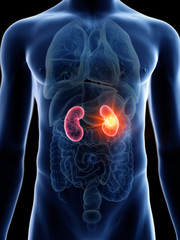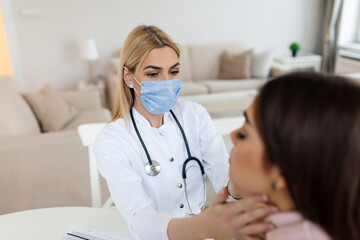As some of us are enjoying the warmer weather, the rest of us are facing the wrath of early spring allergies! Since we had another warm winter, pollen levels may be stronger and last longer this spring allergy season. Sneezing and watery eyes may be more irritating than usual. We can’t forget that COVID-19 is still lingering with us, but let’s also keep in mind that not everything is COVID-19. Yes, some allergy symptoms and COVID-19 symptoms overlap, but it might not be COVID-19 this time. Pollen is the grains or tiny seeds of flowering plants, trees, and grasses. These seeds can be carried on the wind and can cause various symptoms, or none at all, in individuals who are exposed to them.
AFC Urgent Care West Hartford is here to help you and has created a guide for you this spring. We will help clear up any confusion and help you answer the bothersome question of whether it’s allergies or COVID-19.
COVID-19 And Spring Allergies Symptoms
Symptoms of spring allergies and COVID-19 symptoms do overlap and may cause people to second guess when someone coughs or sneezes around them. For people with hay fever, also known as “allergic rhinitis,” breathing in pollen may cause sneezing, congestion, and a runny nose. Pollen exposure may also result in “allergic conjunctivitis” in some individuals, causing red, watery, or itchy eyes. There are many differences between COVID-19 symptoms and spring allergy symptoms. Some symptoms below may vary depending on the individual.
Spring allergies may cause:
- Sneezing
- Itching of the nose, eyes or roof of the mouth
- Runny, stuffy nose
- Watery, red or swollen eyes (conjunctivitis)
Possible COVID-19 symptoms may include:
- Fever or chills
- Cough
- Shortness of breath or difficulty breathing
- Fatigue
- Muscle or body aches
- Headache
- New loss of taste or smell
- Sore throat
- Nausea or vomiting
- Diarrhea
Symptoms may vary. Some people may not even experience any COVID-19 symptoms.
How to Treat My Spring Allergy Symptoms?
Here are some tips in reducing the unwanted allergy triggers.
- Stay indoors on dry, windy days. The best time to go outside is after a good rain, which helps clear pollen from the air.
- Avoid lawn mowing, weed pulling and other gardening chores that stir up allergens.
- Remove clothes you've worn outside and shower to rinse pollen from your skin and hair.
- Don't hang laundry outside — pollen can stick to sheets and towels.
- Wear a face mask if you do outside chores.
If you want to take extra precaution, you may want to check your tv or the internet for the pollen levels. Checking this on a daily basis can help you take an extra step towards fighting the spring allergies this season.
Spring Allergies May Trigger Asthma Symptoms
As it reads, some of you might have more asthma flare ups this season. Allergies may cause wheezing and difficulty breathing. A good suggestion for asthmatics out there is to stock up on inhalers, carry them at all times, or work with a doctor on managing your asthma symptoms this spring allergy season!
AFC Urgent Care West Hartford Can Help You Find Allergy And Asthma Relief
AFC Urgent Care West Hartford wants you to enjoy this spring season. If the spring allergies get too overwhelming our medical professionals are here 7 days a week to treat you. If you have doubts about whether or not it’s COVID, or just allergies, we can test you, so that you can rule it out. We offer antigen, molecular and PCR tests.
No appointments are needed, but they are welcomed. AFC Urgent Care West Hartford can get you back on track to enjoying your spring.


